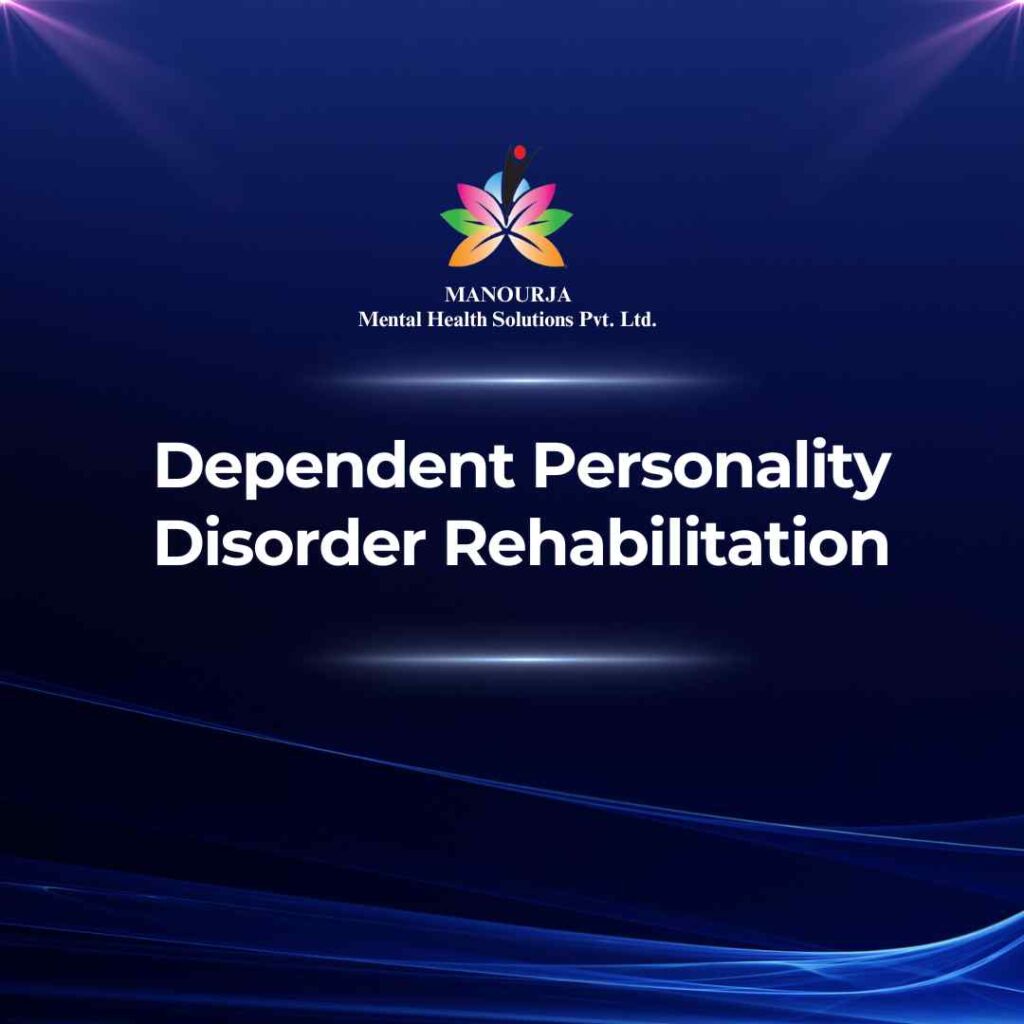Dependent Personality Disorder Rehabilitation

Dependent Personality Disorder (DPD) is characterized by a pervasive and excessive need to be taken care of, leading to submissive and clingy behavior, and fears of separation. Individuals with DPD often have difficulty making everyday decisions without an excessive amount of advice and reassurance from others.
Signs and Symptoms of Dependent Personality Disorder
- Difficulty making decisions without excessive advice and reassurance from others.
- Requires others to assume responsibility for most major areas of their life.
- Problems expressing disagreement with others because of fear of loss of support or approval.
- Difficulty initiating projects or doing things on their own (due to lack of self-confidence in judgment or abilities rather than a lack of motivation or energy).
- Going to excessive lengths to obtain nurturance and support from others, to the point of voluntary doing things that are unpleasant.
- Feelings of discomfort or helplessness when alone because of exaggerated fears of being unable to care for themselves.
- Urgently seeking another relationship as a source of care and support when a close relationship ends.
- Unrealistically preoccupied with fears of being left to take care of themselves.
Indicators for Outpatient Psychosocial Rehabilitation (OPD)
- Individuals with less severe symptoms who are able to maintain some functionality in their daily lives.
- Those who have a stable living situation and can benefit from regular scheduled therapy sessions.
- Presence of supportive family members or friends who can encourage treatment adherence and provide emotional support.
Indicators for Inpatient Psychosocial Rehabilitation (IPD)
- Severe symptoms that significantly impair the individual’s ability to function independently.
- Lack of a stable or supportive home environment, necessitating a structured setting for intensive therapy.
- Co-occurring mental health conditions such as major depression or anxiety disorders, where a more controlled environment is needed to stabilize the individual.
Factors Influencing the Decision
- Severity of the dependency and its impact on daily functioning.
- Presence and quality of support systems.
- Previous outpatient treatment effectiveness and adherence.
- Overall mental health status and presence of other psychiatric conditions.
How Psychosocial Rehabilitation Aids in Treating Dependent Personality Disorder
Psychosocial rehabilitation helps individuals develop healthier, more autonomous relationships, enhance their self-efficacy, and learn to function independently. Key treatment approaches focus on improving self-esteem, coping mechanisms, and interpersonal skills.
Specific Techniques and Approaches at MANOURJA
- Cognitive Behavioral Therapy (CBT): Helps modify the negative thinking patterns that contribute to dependency, enhancing decision-making and problem-solving skills.
- Interpersonal Therapy: Improves communication patterns and develops healthier relationships, reducing the fear of abandonment.
- Assertiveness Training: Empowers individuals to express their own needs and desires more effectively.
- Group Therapy: Provides a supportive environment where individuals can develop social skills and independence while receiving feedback from peers.
Steps in Psychosocial Rehabilitation at MANOURJA
- Initial Assessment: Detailed evaluation of psychological, social, and functional capabilities to tailor an appropriate treatment plan.
- Personalized Treatment Planning: Creating a targeted plan that addresses specific needs, such as enhancing self-esteem and developing independence.
- Implementation of Treatment: Engaging in scheduled therapy sessions and activities designed to reduce dependency behaviors.
- Regular Monitoring and Adjustment: Assessing progress and adapting the treatment plan to ensure the best outcomes.
- Community Reintegration: Supporting the individual in applying new skills to real-life situations and facilitating a gradual return to a more independent life.
“Every day is a new chance to stand on your own and shine.”
